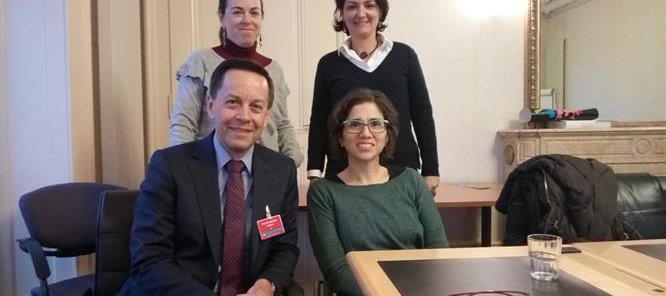How working with the UN has changed the lives of people affected by leprosy

We reached out to the parts of the UN designed to have an impact on human rights
Our very first meeting, back in November 2017, was with officials of the UNOHCHR, which is the Office of the United Nations High Commissioner for Human Rights. By February 2018 we spoke before a session of the UNCRPD in Geneva – this is the UN Convention on the Rights of Persons with Disability.
In both of these instances we brought forward the case of people affected by leprosy and the impact was fantastic; other members of the leprosy community began to represent leprosy at the UN and it has had a multiplying effect across the world.
Our intervention has led to changes in government policy across the world
Our initial submission to the UN resulted in the committee recommending to the government of The Philippines that they address the stigma and discrimination that affects people affected by leprosy in the country. The committee called on the Filipino government to consider people affected by leprosy as persons with disabilities under national law, thereby affording them greater rights and protections under the law.
Soon after this, the CEDAW committee (the UN’s Committee on the Elimination of Discrimination Against Women) made recommendations to the government of Ethiopia to ensure non-discrimination of women affected by leprosy.
As of today, the UN Treaty Bodies have considered the rights of persons affected by leprosy while reviewing the national reports of 8 of the 23 leprosy endemic countries. These reports are submitted to the UN by countries that have ratified the CRPD. This work means that the UN can hold governments to account if they are not protecting the rights of people affected by leprosy.
We’ve been pleased to see that our partners, ILEP and the UN’s Special Rapporteur on leprosy, are now taking the lead in addressing the human rights of persons affected by leprosy before the CEDAW and CRPD committees.
The recommendations on India have been a big victory
These are the recommendations that the CRPD committee has made to the government of India:
- Persons affected by leprosy should receive proper assessments so that they can receive a disability certificate, which will allow them to access certain rights guaranteed under the national disability law to persons with disabilities
- All of India’s laws that discriminate against people affected by leprosy must be repealed
- Awareness must be raised in society about the rights of persons affected by leprosy so that they can receive equal recognition before the law
- The rights of children affected by leprosy to education must be ensured. They must also be free from rejection, bullying and stigma while at school
- Equal access to health care services and health programmes for people affected by leprosy must be ensured
- People affected by leprosy should be able to access affordable housing and have security of tenure
We won’t stop here
We’ve been encouraged by the change that has been achieved so far, but we’re not ready to stop yet. We will keep working with the UN to promote and protect the rights of people affected by leprosy. Watch this space!